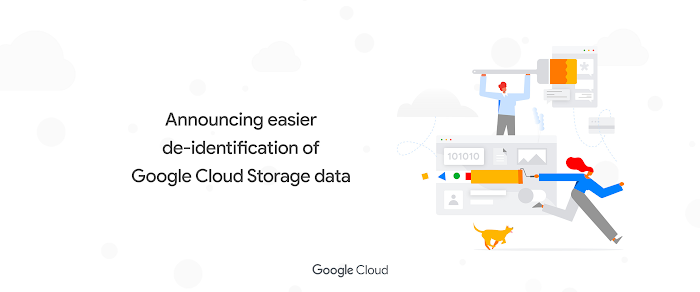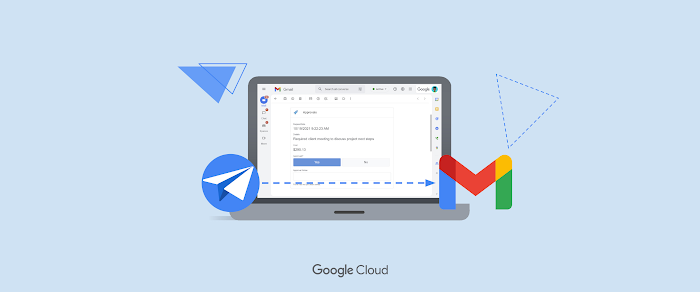Google Cloud’s no-code year in review
Vikas Anand
Director Product, Firebase
At the start of 2020, Google Cloud set out to reimagine the application development space by acquiring AppSheet, an intelligent no-code application development platform that equips both IT and line-of-business users with the tools they need to quickly build apps and automation without writing any code. In the months that followed, we’ve experienced change, growth and a few surprises along the way. Let’s take a look back at 2020 and examine how AppSheet has helped organizations and individuals across the globe create new ways to work.
Responding to the COVID-19 pandemic
In retrospect, the timing of the AppSheet acquisition—which happened right as the pandemic’s impact was becoming better understood—placed Google Cloud in a unique position to support individuals and organizations responding to the crisis. People all around the world, many of whom had no experience writing code, built powerful applications on the AppSheet platform that helped their organizations and communities respond in these uncertain times:
USMEDIC, a provider of comprehensive equipment maintenance solutions to healthcare and medical research communities, built a medical equipment tracking and management solution to support various healthcare organizations, including overrun hospitals struggling to locate equipment.
The Mthunzi Network, a not-for-profit organization that distributes aid to vulnerable populations, built an easy-to-use app to automate the distribution and redemption of digital food vouchers.
The AppSheet Community at large rallied around a particular app that was created for local communities to organize their efforts to support those in need. This single app was built in a matter of days and translated into over 100 languages to make support accessible for anyone who needed it.
It has been humbling and inspiring to witness how no-code app creators have risen to this year’s many challenges. As the issues surrounding the pandemic continue, we are extending AppSheet’s COVID-19 support through June 2021.
Reimagining work
History has demonstrated that innovation is born from necessity. The Guttenberg press, for example, found its notoriety during the plague of the 14th century due to both social and cultural demands. So too has 2020 provided the ultimate forcing function to accelerate digital innovation. It’s forced organizations to reimagine collaboration, productivity, and success, demanding that everyone, not just IT, find new ways to get things done.
For example, Globe Telecom, a leading mobile network provider in the Philippines, adopted AppSheet to accelerate application development. In June, the company announced a no-code hackathon open to all teams, originally planned in 2019 as an in-person event but changed in the wake of the pandemic to an online-only event. Despite the change, organizers were surprised when over 100 teams entered the hackathon, a signal that employees across the organization had an appetite to contribute to the company’s culture of innovation.
The winning team created an app that reports illegal signal boosting. The app captures field data and, if the data shows malfeasance, it triggers automated reports that alert the correct employees to handle the problem, reducing the reporting time from two days to two hours and enabling faster resolution for reported incidents.
We also saw app creators at small businesses and universities build useful no-code solutions with AppSheet. A fifth-generation family business operator created a customer retention app and inventory management app for his jewelry store. An event coordinator built multiple apps to manage registration and logistics for his company’s world-class athletic racing events. A medical student built a flashcard app with a little extra customization and functionality he couldn’t find elsewhere.
Preparing for the future
On our end, we’ve worked tirelessly to improve the platform with nearly 200 releases this year. We’ve made great strides in making AppSheet easier to use for even more users:
The platform’s integrations with Google Workspace, as well as AppSheet’s inclusion in Google Workspace enterprise SKUs, allow people to redefine tasks and processes—and they also add more governance control, boosting AppSheet’s ability to accelerate innovation while avoiding the risks of shadow IT
Easy-to-use app templates help people get started faster and incorporate Google Workspace functionality into their AppSheet-powered apps
Customization features such as Color Picker give app builders more control over their apps
With new connectors, like the Apigee API connector, app creators can link AppSheet to new data sources, opening up a new realm of possibilities
Finally, we would be remiss if we didn’t mention AppSheet capabilities that we announced in September at Google Cloud Next ‘20 OnAir, such as Apigee datasource for AppSheet, which lets AppSheet users harness Apigee APIs, and AppSheet Automation, which offers a natural language interface and contextual recommendations that let users automate business processes. These efforts, combined with the ongoing integration of Google technologies into AppSheet, give the platform an even better understanding of an app creator’s intent, through a more human-centric approach that makes it easier than ever to build apps without writing any code.
While 2020 has been a challenging year for everyone, we’re proud of what we’ve accomplished. At Google Cloud, we will continue to support the transformative solutions created by citizen developers—people who, because they don’t have traditional coding abilities, may have otherwise not been able to build apps. We look forward to seeing what you build in 2021!

